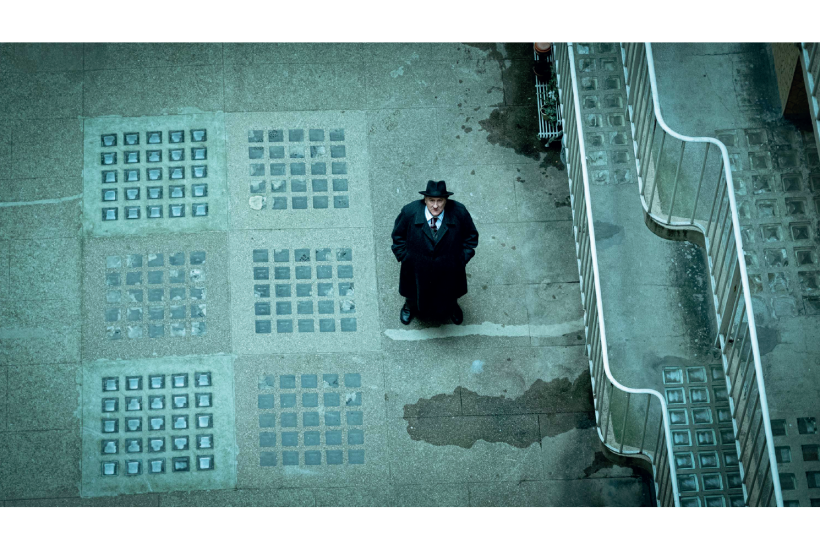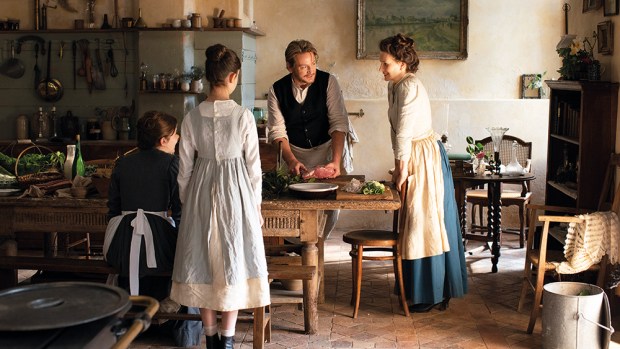Georges Simenon’s lugubrious detective Maigret has appeared in umpteen screen adaptations and dozens of actors have played him. Now it’s Gérard Depardieu’s turn. Depardieu’s Maigret isn’t, in fact, quite how I imagined Maigret. He’s bulkier than the one in my head; moves more cumbersomely, like a sad circus bear. And I never saw him with that nose – but then who would? Yet he may be the best so far, despite the likes of Jean Gabin, Charles Laughton, Richard Harris and Michael Gambon having had a go.
This is adapted from Maigret and the Dead Girl (1954) and is directed by Patrice Leconte. It is minimal and melancholic, beset by the gloominess (I don’t think any lightbulb runs to more than five watts) that also has the great detective in its hold. Maigret looks exhausted and shifts himself awkwardly, like that sad old circus bear or Pavarotti in his later years. It’s as if the seediness of night-time Paris has seeped into his very bones, plus he is becoming short of breath and must give up his beloved pipe, his doctor tells him. Poor Maigret.
He has even lost his appetite so there are no lunch trips to the local bistro for soupe à l’oignon or blanquette de veau which is a pity, as the meals people eat in films are always fascinating to me, and when I read the books as a teenager the food had me spellbound. (What? No Findus crispy pancakes?) Maigret’s not a modern fictional detective, thankfully, so he does not have PTSD, flashbacks, or a wife who’s on his case for not getting home in time for dinner. Maigret does endlessly phone Mme Maigret (Anne Loiret) to say he won’t be home for dinner and she is always perfectly lovely about it.
A body drops at the outset, of course. It’s that of a young woman, around 20 years old, stabbed multiple times, and left in the street. There are no witnesses. She does not carry anything that might identify her. The only clue is the label in her evening dress. The plot will involve a ghastly, entitled couple, Jeanine and Laurent (Mélanie Bernier and Pierre Moure), Laurent’s snobbish mother (Aurore Clément), and the young women who arrive in Paris from the country hoping to make it big but are vulnerable to sexual exploitation. Maigret is horrified by what happens to these women, and there is a personal affinity which is never addressed directly. Maigret fans will know, but it doesn’t matter if you don’t. You will feel it, witness his tenderness, understand why.
It’s a fairly unspectacular plot, actually, and there is no real suspense, but with Maigret, the plot is never the point. Who did what, when, is always less interesting than Maigret himself and the characters he encounters along the way. He doesn’t so much solve a case as observe it while human nature reveals itself, even if he does have the odd Poirot moment: ‘Madame, I see you are left-handed…’ He watches. He waits. He is pensive. He is not blankly sullen, which is where so many actors go wrong.
Depardieu captures all this. He is a tremendously charismatic presence, and it’s that presence we’re here for, rather than the denouement, which I can barely remember. He also communicates that which isn’t said. We know just by the way he takes a first stair he’s not looking forward to climbing all six flights.
Was it wise to cast Depardieu in a tale that involves sexual consent, when there are allegations of sexual misconduct against him? I don’t know. I’ll leave that one with you.
Got something to add? Join the discussion and comment below.
Get 10 issues for just $10
Subscribe to The Spectator Australia today for the next 10 magazine issues, plus full online access, for just $10.
You might disagree with half of it, but you’ll enjoy reading all of it. Try your first month for free, then just $2 a week for the remainder of your first year.














Comments
Don't miss out
Join the conversation with other Spectator Australia readers. Subscribe to leave a comment.
SUBSCRIBEAlready a subscriber? Log in